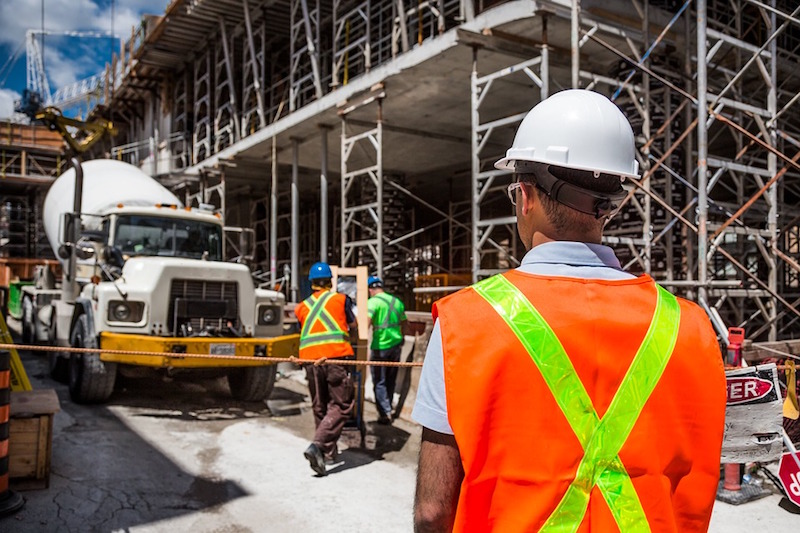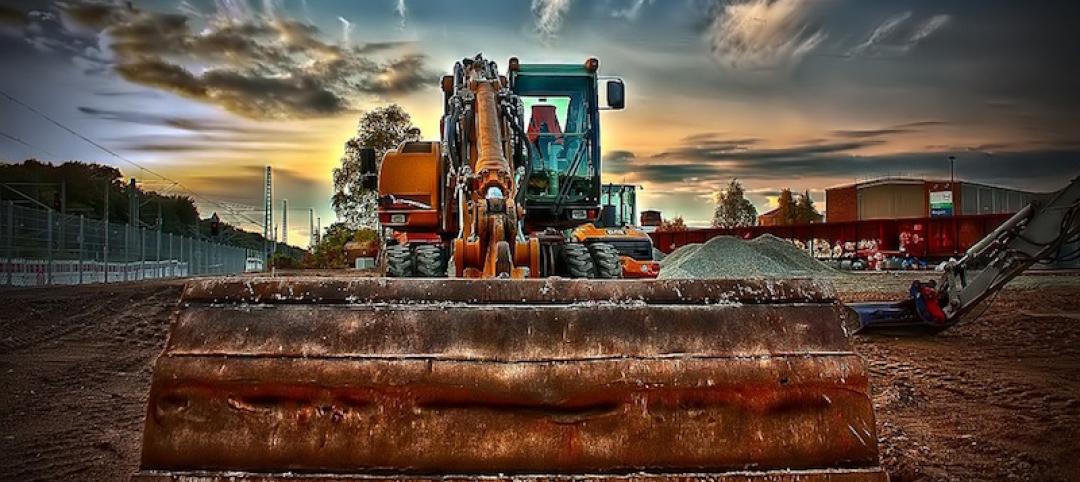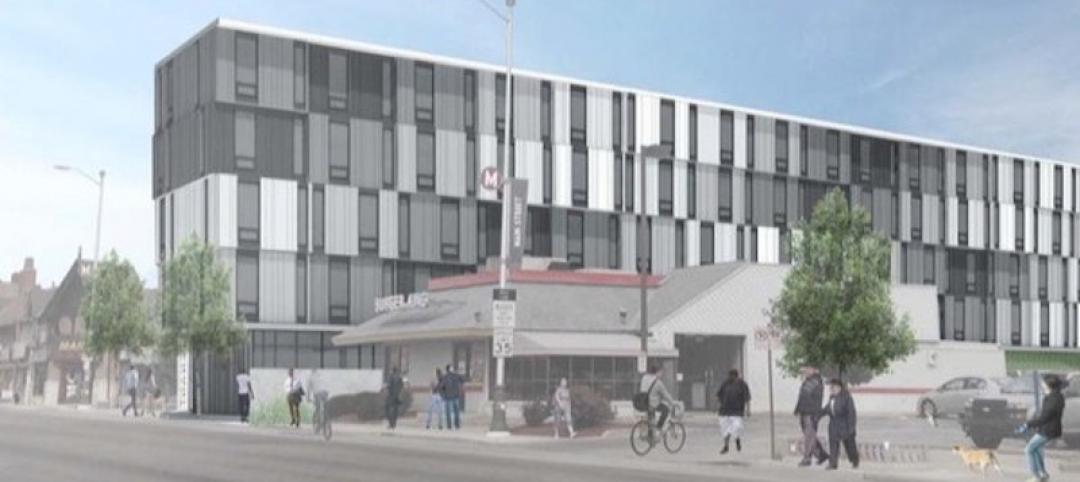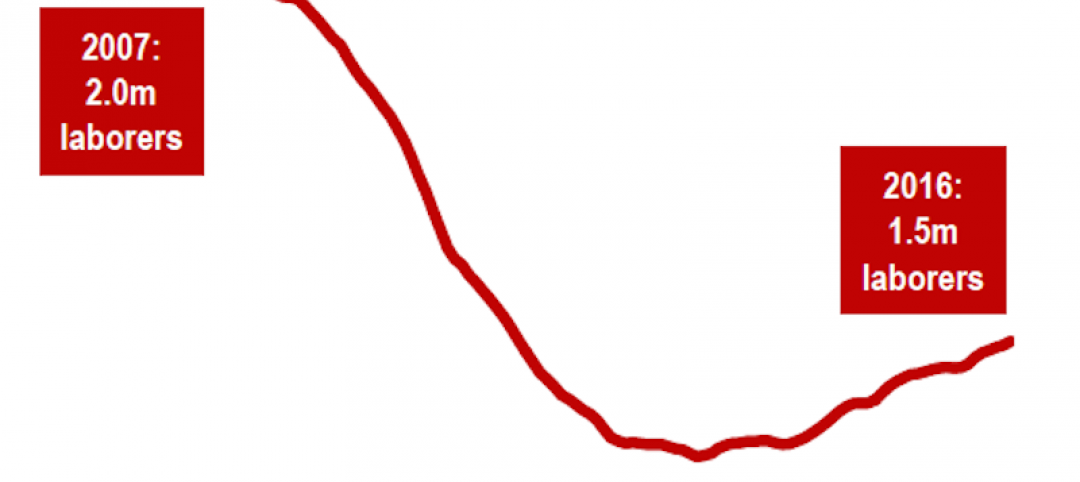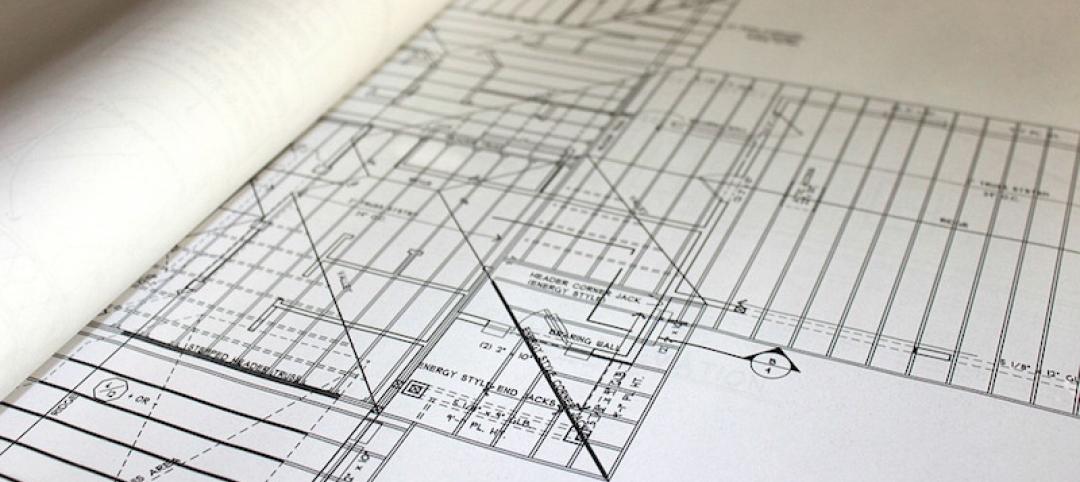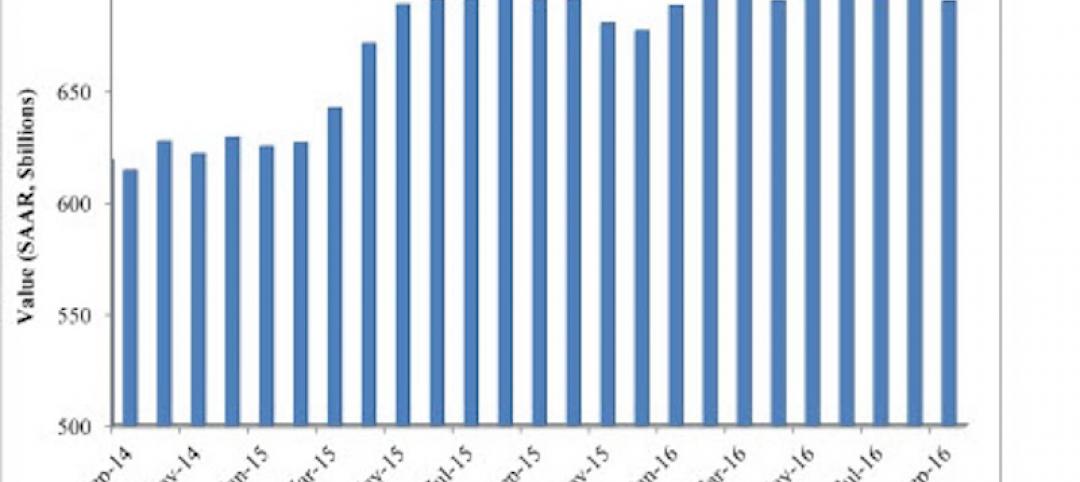Construction employment increased by 61,000 jobs in February to the highest level since June 2008 as rising pay rates enabled the industry to attract more workers, according to an analysis of new government data by the Associated General Contractors of America. However, association officials cautioned that the Trump administration's newly imposed steel and aluminum tariffs have the potential to undermine future employment growth for the sector.
"Construction industry employment has accelerated over the past four months, and industry pay rates are now more than 10% higher than the private-sector average," said Ken Simonson, the association's Chief Economist. "However, steep tariffs on steel and aluminum will add to rapidly rising materials costs. The combination of higher materials and labor costs could push some contractors out of business and make many projects unaffordable."
Construction employment totaled 7,173,000 in February, a gain of 61,000 for the month and 254,000, or 3.7%, over 12 months. The economist pointed out that the year-over-year growth rate in industry jobs was more than double the 1.6% rise in total nonfarm payroll employment.
Residential construction—comprising residential building and specialty trade contractors—added 25,400 jobs in February and 107,500 jobs, or 4.0%, over the past 12 months. Nonresidential construction (building, specialty trades, and heavy and civil engineering construction) employment increased by 35,400 jobs in February and 147,200 positions, or 3.5%, over 12 months.
While the industry added over a quarter-million jobs during the past year, the number of unemployed job seekers with recent construction experience only fell by 49,000 between February 2017 and February 2018. The unemployment rate in construction dropped to 7.8% last month from 8.8% a year earlier. This suggests that most of the new hires at construction firms are from other sectors of the economy or new entrants to the labor force, Simonson said.
One reason so many people may be leaving other sectors for construction is that average hourly earnings in the industry climbed to $29.47, a rise of 3.3% from a year earlier. In contrast, the average for all nonfarm private-sector jobs rose just 2.6% in the past year, to $26.75. The construction rate is now 10.2% higher than the private-sector average, the economist said.
Construction officials said the new employment figures are an encouraging sign that demand for construction services remains robust. But they cautioned that the new tariffs will raise costs for firms, many of which are locked into fixed-price contracts with little ability to charge more for their services. This will leave many employers with less money to invest in equipment and personnel, they added.
"It is frustrating to see the potential benefits of the President's tax cuts and regulatory reforms being undermined by his short-sighted decision to impose tariffs," said Stephen E. Sandherr, the association's Chief Executive Officer. "The best way to help the U.S. steel and aluminum sector is to continue pushing measures, like regulatory reform and new infrastructure funding, that will boost demand for their products."
Related Stories
Market Data | Nov 30, 2016
Marcum Commercial Construction Index reports industry outlook has shifted; more change expected
Overall nonresidential construction spending in September totaled $690.5 billion, down a slight 0.7 percent from a year earlier.
Industry Research | Nov 30, 2016
Multifamily millennials: Here is what millennial renters want in 2017
It’s all about technology and convenience when it comes to the things millennial renters value most in a multifamily facility.
Market Data | Nov 29, 2016
It’s not just traditional infrastructure that requires investment
A national survey finds strong support for essential community buildings.
Industry Research | Nov 28, 2016
Building America: The Merit Shop Scorecard
ABC releases state rankings on policies affecting construction industry.
Multifamily Housing | Nov 28, 2016
Axiometrics predicts apartment deliveries will peak by mid 2017
New York is projected to lead the nation next year, thanks to construction delays in 2016
Market Data | Nov 22, 2016
Construction activity will slow next year: JLL
Risk, labor, and technology are impacting what gets built.
Market Data | Nov 17, 2016
Architecture Billings Index rebounds after two down months
Decline in new design contracts suggests volatility in design activity to persist.
Market Data | Nov 11, 2016
Brand marketing: Why the B2B world needs to embrace consumers
The relevance of brand recognition has always been debatable in the B2B universe. With notable exceptions like BASF, few manufacturers or industry groups see value in generating top-of-mind awareness for their products and services with consumers.
Industry Research | Nov 8, 2016
Austin, Texas wins ‘Top City’ in the Emerging Trends in Real Estate outlook
Austin was followed on the list by Dallas/Fort Worth, Texas and Portland, Ore.
Market Data | Nov 2, 2016
Nonresidential construction spending down in September, but August data upwardly revised
The government revised the August nonresidential construction spending estimate from $686.6 billion to $696.6 billion.


